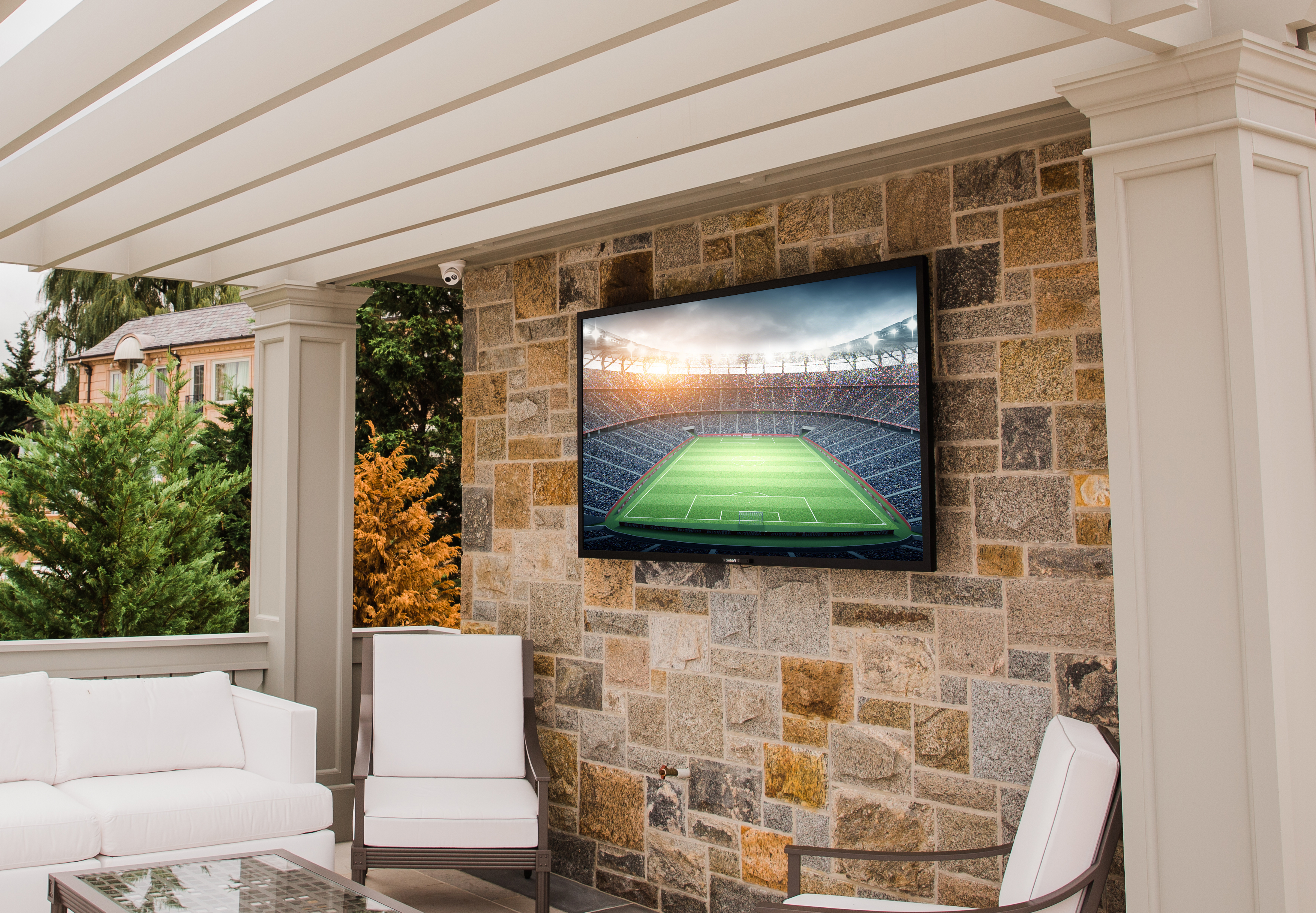Outdoor TVs vs Indoor TVs: A Guide
Here’s Why You Shouldn’t Use an Indoor TV Outside!

The allure of hosting a summer movie night in your backyard or catching the big game by the pool is undeniable! However, when it comes to setting up a TV in your Philadelphia, PA, outdoor space, the choice between using an indoor TV versus investing in an outdoor TV is critical.
While it might be tempting to simply move your indoor TV outside for occasional events, doing so can lead to numerous problems and potential hazards. In this blog, we’ll explore the fundamental differences between outdoor and indoor TVs—and outline why using an indoor TV outside is not advisable.
Keep reading below for more!
SEE ALSO: How Can an AV Company Transform Your Home?
Understanding the Differences
Built for the Environment: Outdoor TVs are specifically designed to withstand the elements. This includes resistance to rain, dust, insects, and humidity. They are built with weatherproof materials that prevent moisture and particles from damaging the internal components. On the other hand, indoor TVs lack this protection, making them susceptible to damage when exposed to outdoor conditions.
Temperature Tolerance: Outdoor temperatures can vary widely, from scorching summer heat to freezing winter conditions. Outdoor TVs are engineered to operate in a wide range of temperatures, ensuring they continue to function regardless of the weather. Indoor TVs, however, are not built to handle extreme temperatures, which can affect performance and longevity.
Brightness & Glare: Sunlight is a significant factor to consider. Outdoor TVs are designed with higher brightness levels and anti-glare screens to ensure the picture is clear even in direct sunlight. Indoor TVs typically do not have the brightness necessary to combat outdoor light conditions, resulting in a washed-out image that's hard to see.
Why You Shouldn't Use an Indoor TV Outside
Risk of Electrical Hazards: Using an indoor TV outdoors increases the risk of electrical hazards. Moisture from dew, rain, or humidity can seep into the device, potentially causing short circuits or electrical fires.
Voided Warranty: Most indoor TV warranties are void if the TV is used in conditions in which it was not designed, including outdoor environments. This means if your TV is damaged while outside, you're likely to bear the total cost of repair or replacement.
Reduced Lifespan: Exposure to outdoor elements can significantly shorten the lifespan of an indoor TV. Moisture can corrode internal components, insects can get inside and cause damage, and extreme temperatures can lead to overheating or other failures.
Compromised Picture Quality: Even if your indoor TV appears to operate fine outdoors initially, the picture quality can be significantly compromised. Without the necessary brightness and anti-glare features, you're likely to have a subpar viewing experience.
Want to learn more about outdoor TVs for your backyard spaces? Give our team a call or fill out our online contact form here. We look forward to hearing from you!

